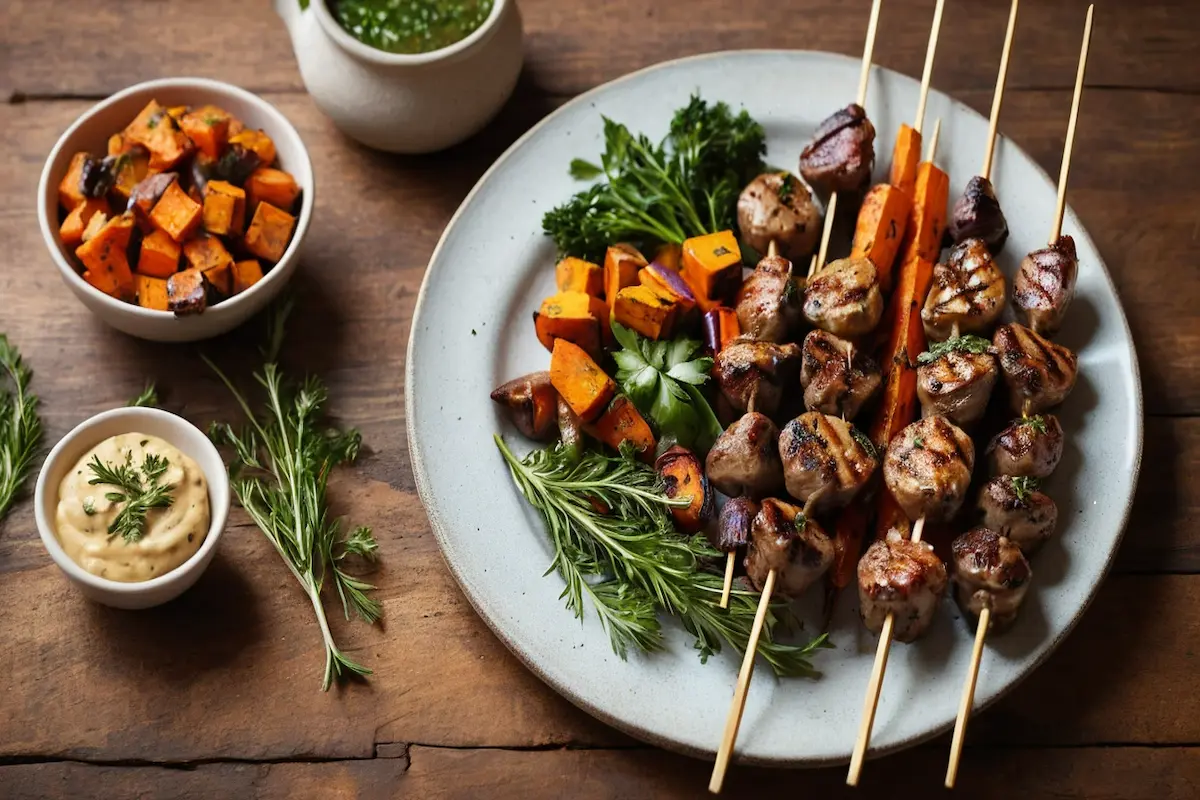Introduction
Are you looking for a simple and affordable way to boost your meals with nutrients? Chicken hearts provide a rich source of essential vitamins, minerals, and protein. These small yet mighty organ meats offer numerous benefits for your health while promoting sustainability. They also bring versatility to your cooking and make a fantastic addition to any diet.
By embracing organ meats, you support eco-conscious eating practices and help reduce food waste. With so many advantages, chicken hearts are a hidden gem worth exploring. For inspiration on adding new ingredients to your meals, read about the benefits of underutilized meats.
Why Should You Choose Chicken Hearts?
Packed with Nutrients
Chicken hearts deliver an impressive amount of nutrition:
- Protein: Each 100-gram serving contains 26 grams of protein. This helps repair muscles and promotes growth.
- Iron: This vital mineral supports red blood cell production and reduces fatigue, especially for those with anemia.
- Vitamin B12: This essential vitamin improves energy levels and maintains a healthy nervous system.
Adding chicken hearts to your diet ensures you get key nutrients. For other family-friendly ideas to boost health, this kid-friendly pudding guide might offer helpful options.
Affordable and Sustainable
Chicken hearts cost less than traditional cuts like chicken breasts or thighs, which makes them an excellent choice for those on a budget. They also align with nose-to-tail eating, a practice that minimizes food waste by using every part of the animal. Choosing this approach supports ethical and environmentally friendly cooking.
How Chicken Hearts Improve Your Health
Boosts Energy Levels
Chicken hearts contain high levels of vitamin B12, which improves oxygen transport in the body. As a result, they increase energy and reduce fatigue. People who need extra vitality will benefit greatly by including them in meals.
Strengthens Your Immune System
These organ meats contain significant amounts of zinc and selenium. These nutrients enhance your immune function and help the body fight infections. They also support faster healing and better cellular repair, keeping you strong and healthy.
Supports Active Lifestyles
For athletes or people with busy lives, chicken hearts provide an excellent source of protein. This nutrient aids muscle recovery and promotes long-lasting energy. Adding them to your diet ensures you stay active and energized throughout the day.
How to Prepare and Cook Chicken Hearts
Easy Preparation Steps
Preparing chicken hearts is simple and doesn’t take much time:
- Rinse Well: Wash the hearts under cold water to remove impurities.
- Trim Any Fat: Remove visible fat or connective tissue to improve texture.
- Marinate for Flavor: Enhance their taste with olive oil, garlic, lemon juice, and your favorite spices.
By following these steps, you set the stage for a delicious meal.
Versatile Cooking Methods
Chicken hearts adapt to a variety of cooking techniques:
- Grilling: Skewer them and cook over high heat for a smoky flavor.
- Pan-Frying: Heat them in a skillet until they turn crispy and golden on the outside.
- Braising: Slowly cook them in a rich sauce for tender, flavorful results.
- Stir-Frying: Toss them with vegetables and soy sauce for a quick and balanced dinner.
For pairing ideas, explore this guide to sweet potato recipes to create complementary dishes.
Creative Serving Ideas
Here are some ways to enjoy chicken hearts:
- Add grilled hearts to a fresh salad for a protein-rich lunch.
- Pair braised hearts with roasted vegetables for a hearty meal.
- Use pan-fried hearts as a topping for rice bowls or quinoa dishes.
These versatile meats easily fit into many recipes, making them an ideal choice for meal planning.
How Chicken Hearts Promote Sustainability
Reducing Food Waste
Eating chicken hearts reduces waste by ensuring more of the animal gets used. This practice supports sustainable food systems and helps conserve resources. By making choices like these, you play a role in minimizing the environmental impact of food production.
Supporting Local Farmers
Purchasing chicken hearts from local butchers or farms benefits small-scale agriculture. It also ensures you get fresh, high-quality products. Sourcing locally reduces transportation needs, which lowers your environmental footprint.
For more eco-friendly recipes, check out this cucumber dish guide for creative and sustainable ideas.
Frequently Asked Questions
Are Chicken Hearts Healthy?
Yes, they provide essential vitamins, minerals, and protein while being low in calories. They make an excellent addition to a balanced diet.
What Do Chicken Hearts Taste Like?
They have a mild, slightly sweet flavor with a tender yet chewy texture, making them enjoyable for many people.
Can Kids Eat Chicken Hearts?
Absolutely! Chicken hearts offer nutrients like iron and B12, which are vital for growth and development. Just ensure they’re fully cooked before serving.
How Do You Store Chicken Hearts?
Store fresh chicken hearts in the refrigerator for up to two days. For longer storage, freeze them in an airtight container to maintain freshness.
Simple Ways to Add Chicken Hearts to Meals
Easy Recipe Ideas
Incorporating chicken hearts into your meals can be easy:
- Stir-fry them with vegetables for a quick and healthy dinner.
- Grill them on skewers and serve alongside roasted potatoes.
- Add them to soups or stews for a richer flavor.
Flavor Pairings
Chicken hearts pair well with bold spices like paprika, cumin, and rosemary. Combine them with quinoa, roasted vegetables, or a fresh green salad to create a balanced and delicious meal. For more culinary inspiration, explore this guide to unique chocolate recipes.
Conclusion
Chicken hearts are a nutritious, versatile, and affordable addition to your kitchen. They deliver essential nutrients like protein, iron, and B12, helping boost your energy, strengthen your immune system, and support muscle recovery. Additionally, they promote sustainability by reducing food waste and supporting local farms.
Whether you grill, fry, or braise them, chicken hearts offer endless possibilities for delicious meals. By including them in your diet, you not only improve your health but also take a step toward more eco-friendly eating habits. For more creative ideas and recipes, discover additional dishes in Crisp Fresh Recipes’ collection.

